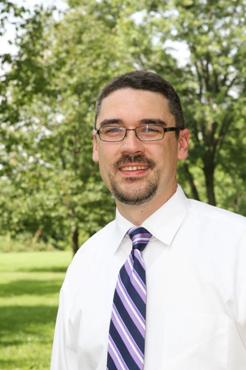

|
Few words carry the weight of misconception, fear, and division as antichrist. The Christian community is splintered both in part and in whole concerning the subject. For many this word antichrist conjures up thoughts of a mastermind of world domination. He has been personified as a world leader, a crafty politician, an orator on the grandest stage, and even the devil incarnate. Countries and their leaders have been charged with being the antichrist. United States Presidents of both parties have been called the antichrist—all blamed for ushering in antichrist. Antichrist, for many, will be a person of great influence appearing the final days.
The personified antichrist movement finds advocates who include well known and high profile Christian speakers. Exuberant amounts of money, investment in books, movies, and television shows all promote the concept of antichrist—the person. However, I intend to note that antichrist is not a person in the sense of man, woman, or child of distinctiveness; rather, antichrist is that which seeks to harm the message and personhood of Jesus Christ.
The word antichrist is the Greek word antichristos, which is a combination of Anti, meaning instead of or in opposition to, and Christos, meaning Christ or Messiah. It quite literally means against Christ. The word antichrist has five occurrences in four passages—all of them exclusive to the Johannine epistles: 1 John 2:18; 1 John 2:22; 1 John 4:3; 2 John 1:7. While other portions of scripture including passages in the book of Daniel and the book of Revelation along with 1 Thessalonians 2:3-12 have been incorporated into the study of antichrist, our goal is to not directly debate the false teaching of antichrist (such an endeavor would take more than the allowed 1500 word allotment). This article seeks to focus solely on the term first utilized and only used by John.
John’s coin of phrase finds direct relationship to the first two verses of his first epistle “What was from the beginning, what we have heard, what we have seen with our eyes, what we have looked at and touched with our hands, concerning the Word of Life—and the life was manifested, and we have seen and testify and proclaim to you the eternal life, which was with the Father and was manifested to us” (1 John 1:1-2). John’s goal is to be an advocate for truth and a proclaimer that Jesus is in fact God incarnate. John appears to have concern that the infant church is experiencing a deception. He makes the case that all truth and life are found in Christ Jesus. His argument naturally leads him to distinguish that which is hijacking believers by leading them to an untruth. John writes, “Children, it is the last hour; and just as you heard that antichrist is coming, even now many antichrists have appeared; from this we know that it is the last hour” (1 John 2:18). John was warning of a direct assault against Jesus. It is an on-going barrage we face yet today. John makes such a validation later in the same epistle “of which you have heard that it is coming, and now it is already in the world” (1 John 4:3). In other words, antichrist was present at the writing of John’s epistle and more antichrists would come.
Notice what John does in 1 John 2:19 where he uses the pronoun they, signifying a group spreading the antichrist message. A group signifies a shared cause and belief system. If I am to belong to a group, I share the ideas, motivations, beliefs, and doctrine held by that group. When I was ordained into Christian ministry, it did not occur through a random act. There was a process leading up to my ordination which ensured my Biblical stance. Once such was found to be in line with the church of God, I accepted them and they accepted me. I became a part of a group with shared values, beliefs, and convictions. Right or wrong, left or right, up or down matters not—a group is defined by their shared perception of a thing or many things. John is simply identifying a group which is present and will remain an active adversary to Christ—thereby to the church. John is not naming a person, but calling out a group with a cause that has been promoted and will continue to be promoted.
We find the same concept in 1 John 4:3, “of which you have heard that it is coming, and now it is already in the world.” What was already in the world? It was—the belief system of the antichrist was already in the world. Antichrist is not necessarily a man, although men and women will promote the antichrist message, but antichrist is a philosophy which is in opposition to Christ Jesus. John establishes this real and present danger by defining how and why the antichrist philosophy is a danger. He writes, “Who is the liar but the one who denies that Jesus is the Christ? This is the antichrist, the one who denies the Father and the Son” (1 John 2:22). The author identifies antichrist as a liar because antichrist denies Jesus is the Christ—God incarnate. This harkens to the opposition Jesus faced while on earth, and even yet today. If Jesus is denied as Christ, then His sacrifice means nothing. He is not God’s Son; He is not the one of whom prophets prophesied; He is not God incarnate.
John provides further insight “and every spirit that does not confess Jesus is not from God; this is the spirit of the antichrist, of which you have heard that it is coming, and now it is already in the world” (1 John 4:3). From Jew to Gnostic to Christian Science proponent, Jesus is denied as God in flesh. These are examples of antichrist, but these are not the only examples. Any church small group leader, who proposes Jesus as anything but God incarnate, is speaking in the spirit of antichrist. Any preacher, who dismisses the importance of salvation through Christ, is preaching in the spirit of antichrist. Any atheist, who laughs at the concept that God had a Son who died to pardon sin, is echoing the spirit of antichrist.
“For many deceivers have gone out into the world, those who do not acknowledge Jesus Christ as coming in the flesh. This is the deceiver and the antichrist” (2 John 1:7). There is an understated tone in which John is reminding the reader the only path to salvation is found in Jesus. If you deny Jesus, you deny God’s salvation. Such denial seems perpetuated by deception. Any magician worth her salt knows how to deceive the eye of the beholder. John’s warning is clear—don’t be deceived, Jesus is God incarnate—in Him alone salvation is found.
The goal of antichrist is a rejection of Jesus—pure and simple. This is made clear by John when he writes, “This is the antichrist, the one who denies the Father and the Son” (1 John 2:22). If Jesus is Who Jesus claims to be, then salvation has come to humanity. If Jesus is denied, debunked, and depreciated, humanity remains at odds with God: separated, alone, and dead.
The enemy of our soul desires not for us to unify with God, but to reject God, and such occurs by the denial of Jesus as Messiah. Such denial is not reserved for the loudest voice against Christ— denial of Jesus as Messiah applies to the passive as well. Whosoever denies Jesus by word, deed, or inaction is operating in the spirit of antichrist “Just as you have heard antichrist is coming, even now many antichrists have appeared” (1 John 2:18).
We are not waiting on a person, but a continued propagation of an idea. John describes antichrist as a liar, denier, and deceiver. It is proliferated on the principle, to reject, deny, and dismantle the message and the person of Jesus Christ. Such occurs from outside forces, but perhaps most damaging is from within the very ranks of believers. As John writes, “Watch yourselves, that you do not lose what we have accomplished, but that you may receive a full reward” (2 John 1:8). John’s concern in his epistles is to tell of a present danger and warn of an ongoing concern. His focus is not a literal human being, but a collective message meant to void Jesus as God; that danger remains our concern—that is antichrist.
|

|
A Great Historic Roman Catholic Authority on the Identity of Antichrist
Cardinal Bellarmine: For all Catholics think thus that Antichrist will be one certain man; but all heretics teach . . . that Antichrist is expressly declared to be not a single person . . . .” Cardinal Bellarmine of Italy in his “Disputations with Heretics,” 1581-1593 |